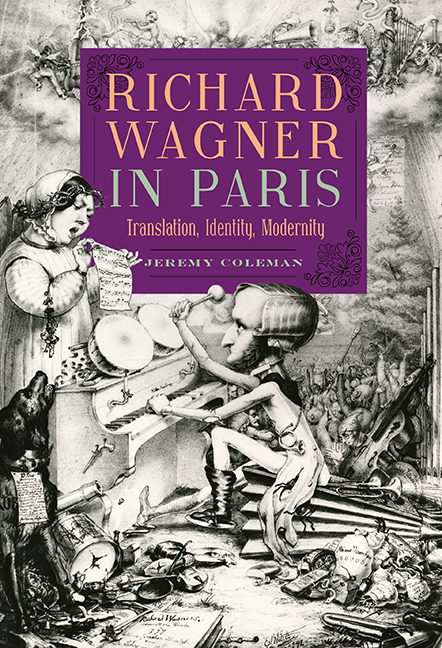Book contents
- Frontmatter
- Dedication
- Contents
- List of Illustrations
- List of Music Examples
- Note on the Text
- Acknowledgements
- Abbreviations
- Introduction: Wagner Against the Grain
- PART I PARIS YEARS, 1839–42
- PART II DRESDEN AND ZURICH, 1842–52
- 3 “… in ein fernes Land”: German Identity Between Paris and Dresden
- 4 Exile, Internationalism and Media After the Revolution
- PART III PARIS YEARS, 1859–61
- Conclusion: Universality at the Crossroads
- Bibliography
- Index
3 - “… in ein fernes Land”: German Identity Between Paris and Dresden
from PART II - DRESDEN AND ZURICH, 1842–52
Published online by Cambridge University Press: 25 March 2020
- Frontmatter
- Dedication
- Contents
- List of Illustrations
- List of Music Examples
- Note on the Text
- Acknowledgements
- Abbreviations
- Introduction: Wagner Against the Grain
- PART I PARIS YEARS, 1839–42
- PART II DRESDEN AND ZURICH, 1842–52
- 3 “… in ein fernes Land”: German Identity Between Paris and Dresden
- 4 Exile, Internationalism and Media After the Revolution
- PART III PARIS YEARS, 1859–61
- Conclusion: Universality at the Crossroads
- Bibliography
- Index
Summary
“FOR the first time I saw the Rhine – with hot tears in my eyes, I, poor artist, swore eternal fidelity to my German fatherland.” With this potent image at the close of his “Autobiographische Skizze” (published February 1843), Wagner recalled his departure from Paris and return to Saxony in April 1842 in explicitly nationalist terms. Heinrich Laube could only sympathise in his preface to the autobiography: “outwardly poorer, inwardly richer, after a couple of years the travelling musician was back in Saxony, which has given a glorious welcome to her son”. In political terms, the Romantic image of the river Rhine as a threshold exploited German nationalist feeling in the wake of the Rhine crisis of 1840, as France once again made demands on territory it had occupied during the Napoleonic era. For Wagner personally, not only did he admit how little he felt connected to other Germans on his return, but the nationalist triumphalism of the autobiography concealed an admission of failure to launch an operatic career in Paris as he had hoped, a project which had supplied him with the means of establishing himself anew in German states.
It is this ambiguity as it lingered in Wagner's “Dresden” years (1842–49) that will be foregrounded in the present chapter. As we have seen in the previous chapter, signs that Wagner had already renounced hope of a Parisian success were thematised in the very articles, reviews and novellas he wrote for simultaneous publication in Paris and in Dresden, which involved the translation of texts between French and German. It follows to consider Wagner's “Dresden” years in a series of snapshots that capture the various means whereby he produced German national identity out of translations between French and German – “translations” both in both literal and more figurative senses of the word. These range from deliberate attempts on his part to refashion earlier Paris-conceived works to more problematic instances of German translation which he either sought to correct or simply dismissed. Like his own fabled crossing of the Rhine into new autobiographical territory, this “Dresden” period and the wider context of the Vormärz are marked by the traversal of borders between apparently stable cultural and political identities.
- Type
- Chapter
- Information
- Richard Wagner in ParisTranslation, Identity, Modernity, pp. 77 - 104Publisher: Boydell & BrewerPrint publication year: 2019



